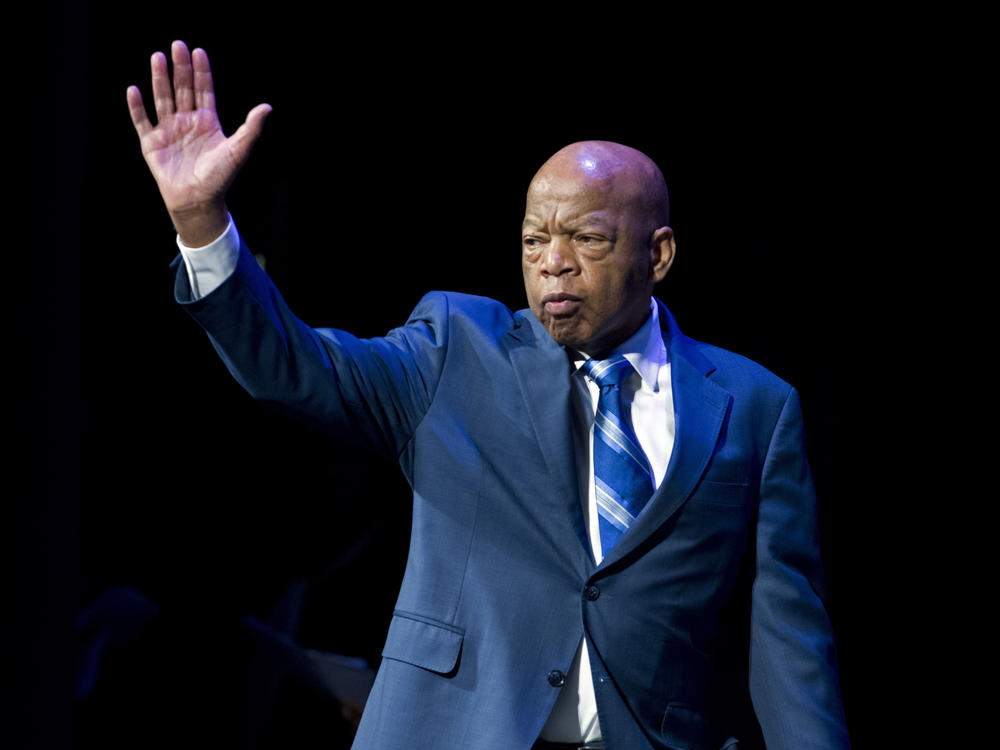Section Branding
Header Content
Rep. John Lewis Will Lie In State At The U.S. Capitol, With An Outdoor Public Viewing
Primary Content
The body of civil rights icon and longtime congressman John Lewis will lie in state at the U.S. Capitol next week, with a public viewing that will take place outdoors because of the coronavirus pandemic.
House Speaker Nancy Pelosi and Senate Majority Leader Mitch McConnell made the announcement in a joint press release Thursday.
They said an invitation-only arrival ceremony will be held in the Capitol Rotunda on Monday at 1:30 p.m., and members of the public will be able to pay their respects outside of the building on Monday and Tuesday.
"Given COVID-19 precautions, Congressman Lewis will lie in state at the top of the East Front Steps of the U.S. Capitol for the public viewing, and the public will file past on the East Plaza," they wrote.
Congressional leaders had initially expressed uncertainty about how they might be able to honor Lewis given the health risks and safety precautions associated with the coronavirus.
Under local orders, attendees will be required to wear masks in order to enter the line. Pelosi and McConnell said social distancing will be "strictly enforced."
According to the release, Lewis' family will provide details about additional memorial arrangements, including a procession through Washington, D.C., "where members of the public will also be able to pay their respects in a socially-distant manner."
The family is requesting that people do not travel to Washington from other parts of the country to pay their respects in person, due to the pandemic. Instead, they are encouraging people to post virtual tributes online using the hashtags #BelovedCommunity and #HumanDignity.
Lewis died last Friday at age 80 after battling pancreatic cancer, which he called one of the many fights in his life.
Many of those battles were for freedom and equality: he led sit-ins at segregated lunch counters in the Jim Crow-era South, spoke at the 1963 March on Washington and marched for voting rights on the Edmund Pettus Bridge in Selma, Ala., where he and other peaceful protesters were brutally beaten by state troopers.
Lewis went on to represent the Atlanta area in the U.S. House of Representatives for more than three decades, during which time he became known as "the conscience of the Congress."
Copyright 2020 NPR. To see more, visit https://www.npr.org.

